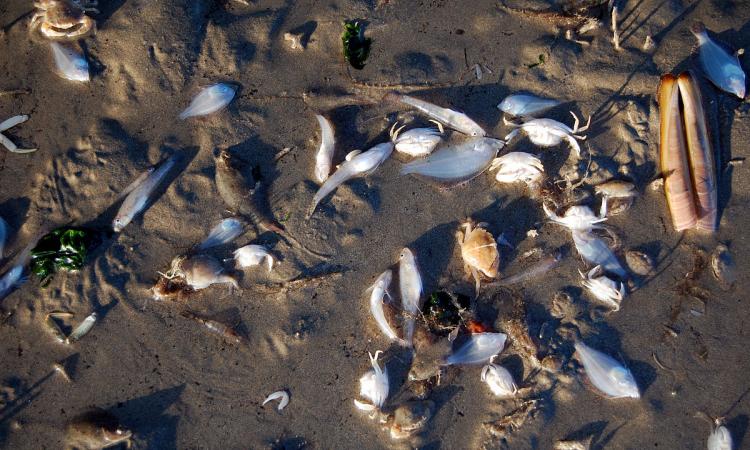
Fishing trawlers symbolise industrial-scale fishing which is lucrative in the present day market. These machines that catch fish in huge numbers are said to be a boon to the sector’s economy but a closer look at the figures show that these modes of mass fishing may not be as efficient as they may seem to appear. While casting the net for the lucrative catch, thousands of juvenile fishes and other marine species, collectively called bycatch, get trapped in the trawler’s net. What is considered redundant bycatch are important water creatures that play key roles within their co-dependent ecosystems. The loss of this bycatch from the waters result in serious damage to marine biodiversity.
Researchers studied bycatch on the coast of Andhra Pradesh in India to understand the true economic implication of this mass unintentional fishing. The study showed that as much as nearly 60 percent of the total biomass brought in by the trawlers is forgone because they are the juvenile catch; they bring in very little revenue for the fishers in the market. And when juveniles are not given an opportunity to grow to adulthood and to breed, it has a huge impact on the future population of the species as well as on the interdependent ecosystem. This unintended mass bycatch is a colossal waste since the catch has little to no commercial value and is often sold cheap to the fishmeal and poultry industries. Add to this the future loss due to the death of juveniles and the figure is staggering. Bycatch hurts not just the ecology but the economy as well.
Bycatch from trawlers is of great concern worldwide and extensive studies are carried out to understand its impact on the structure of marine communities and the ecosystems. To reverse these losses, fishermen should be made aware of the consequences of unsustainable fishing. Apart from that, incentivising the use of technologies that save juvenile fish and other bycatch, implementing fishing holidays or "no-take zones" are some of the measures that could be taken to ensure sustainable fishing.
Trawling has acquired the status of an industry with state-of-the-art technology encouraging numerous trawlers to go into the seas posing a great threat to the marine life. By working towards minimising these environmentally and economically deteriorating practices, revenues can be fortified making it a win-win situation for all parties involved.
‘Lets Invest in Nature’ (#LetsInvestInNature) is a special series of video stories designed by the Indo-German Biodiversity Programme. It is dedicated to estimating and mainstreaming the true economic value of biodiversity in business-related decisions and policy making. Watch this short video for more information.